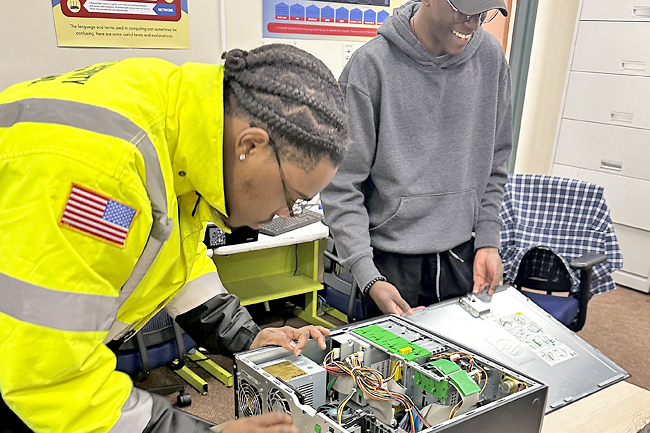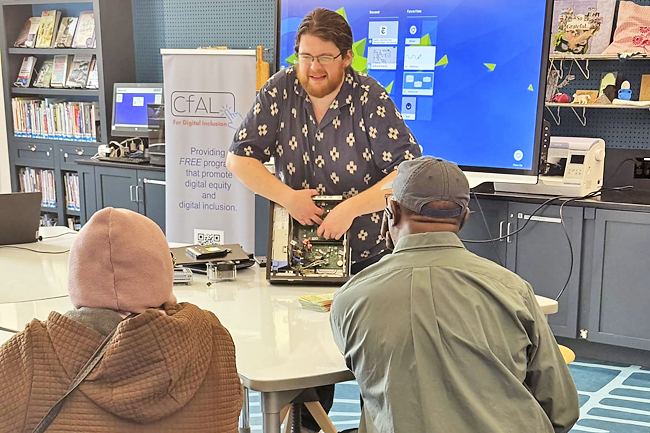AP – With many jobs expected to eventually rely on generative artificial intelligence (AI), states are trying to help workers beef up their tech skills before they become outdated and get outfoxed by machines that are becoming increasingly smarter.
United States’ Connecticut is working to create what proponents believe will be the country’s first Citizens AI Academy, a free online repository of curated classes that users can take to learn basic skills or obtain a certificate needed for employment.
“This is a rapidly evolving area,” said state Democratic Senator James Maroney. “So we need to all learn what are the best sources for staying current. How can we update our skills? Who can be trusted sources?”
Determining what skills are necessary in an AI world can be a challenge for state legislators given the fast-moving nature of the technology and differing opinions about what approach is best.
rofessor Gregory LaBlanc of Finance, Strategy and Law at the Haas School of Business at Berkeley Law School in California said workers should be taught how to use and manage generative AI rather than how the technology works, partly because computers will soon be better able to perform certain tasks previously performed by humans.

“What we need is to lean into things that complement AI as opposed to learning to be really bad imitators of AI,” he said. “We need to figure out what is AI not good at and then teach those things. And those things are generally things like creativity, empathy, high level problem solving.”
He said historically people have not needed to understand technological advancements in order for them to succeed.
“When electricity came along, we didn’t tell everybody that they needed to become electrical engineers,” LeBlanc said.
This year, at least four states – Connecticut, California, Mississippi and Maryland – proposed legislation that attempted to deal with AI in the classroom somehow. They ranged from Connecticut’s planned AI Academy, which was originally included in a wide-ranging AI regulation bill that failed but the concept is still being developed by state education officials, to proposed working groups that examine how AI can be incorporated safely in public schools.
Such a bill died in the Mississippi legislature while the others remain in flux.
One bill in California would require a state working group to consider incorporating AI literacy skills into math, science, history and social science curriculums.
“AI has the potential to positively impact the way we live, but only if we know how to use it, and use it responsibly,” said the bill’s author, Assemblymember Marc Berman, in a statement. “No matter their future profession, we must ensure that all students understand basic AI principles and applications, that they have the skills to recognise when AI is employed, and are aware of AI’s implications, limitations, and ethical considerations.”
The bill is backed by the California Chamber of Commerce. CalChamber Policy Advocate Ronak Daylami said in a statement that incorporating information into existing school curricula will “dispel the stigma and mystique of the technology, not only helping students become more discerning and intentional users and consumers of AI, but also better positioning future generations of workers to succeed in an AI-driven workforce and hopefully inspiring the next generation of computer scientists.”
While Connecticut’s planned AI Academy is expected to offer certificates to people who complete certain skills programmes that might be needed for careers, Maroney said the academy will also include the basics, from digital literacy to how to pose questions to a chatbot.
He said it’s important for people to have the skills to understand, evaluate and effectively interact with AI technologies, whether it’s a chatbot or machines that learn to identify problems and make decisions that mimic human decision-making.
“Most jobs are going to require some form of literacy,” Maroney said. “I think that if you aren’t learning how to use it, you’ll be at a disadvantage.”



